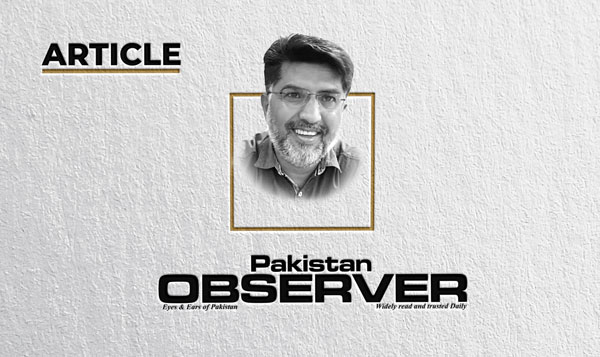Quality check or cheque in higher education
QUALITY Education, especially quality in higher education, is considered a major concern by various stakeholders, including the Government of Pakistan.
The main reason is an increasing competition and the abundance of programs offered through different teaching and learning modes.
In the market, only those qualifications are considered quality which help the graduates to secure jobs in the public and private sectors immediately after graduation.
It is also observed that due to the quality of graduates of some reputed universities in the country, they are mostly preferred over others in some disciplines.
As a result, such reputable institutions charge hefty amounts from students as semester fee, including tuition fee, laboratory fee, magazine fee, library fee, computer fee, security fee, etc.
It is interesting to note that whether students use laboratories or otherwise, they are charged for it.
When schools, colleges and universities are asked to describe reasons for such considerable charges in terms of fees, they respond that every professional program requires accreditation from various accreditation councils.
The accreditation structures, accreditation councils and other such organizations ensure that teaching and learning processes are carried out professionally and comply with good international practices.
They provide accreditation program labels to the qualifications for the payment of the hefty amount on an annual basis, and such a continuous cycle offers a win-win situation for both i.e. higher education institution and the council.
The processing fee for accreditation of higher education institutions and programs varies, and it is compulsory to get the accreditation label for each intake, either bi-annual or annual.
The program accreditation given by the councils is mostly batch-wise i.e. for four years. If a yniversity or degree awarding institution offers multiple professional programs, it has to get the accreditation of all programs after paying almost millions of rupees.
Accreditation is not mandatory in most developed countries, but as a nation, we must comply due to the tendency to compromise on settled principles and standards.
The institutions follow it as the companies, businesses, industries in the field demand the same.
Almost all stakeholders consider it a symbol of quality. However, they are autonomous enough to carry out various good practices in teaching, learning and research.
The quality of the graduates remained a concern, even when regulatory bodies conducted regular external evaluations of institutions and assessments of programs regularly.
The costly visits and reviews cannot deliver until and unless institutional willingness to adhere to the standards with letter and spirit is not there.
For that, a sincere effort to develop ownership of various measures at institutions is required.
The leadership can do that by enabling the environment, appreciating merit and promoting the best of the best to the higher ranks.
A positive learning environment is only possible if admission is given on merit with the right class size, and student and teacher ratio for whom the libraries have good books and laboratories are equipped with computers, chemicals and supporting staff.
The inquiry approach should be promoted as it can help students think and apply their knowledge differently; otherwise, they will become parrots.
International qualifications like O & A levels involve critical and analytical skills. However, our systems still focus on rote learning which can only produce better Babus than scientists and other professionals.
The International Standard Organization certification is also popular in academic institutions like other businesses, industries and development organizations.
The certification cycle varies from type to accreditation. In some cases, it is for two years, and in others, it is for four years.
Most schools and colleges try to get affiliation with famous institutions to attract students to become their regular clients.
The international qualifications at school levels are not only transferring Pakistani’s hard-earned money but also pushing them to believe in the narrative taught through international curricula in place.
This detracts them from our social, cultural and religious values. Their lifestyle and practices are far away from our cultural norms which gradually makes them believe that other locals are ignorant and do not have the etiquette in developed societies.
The cost of the character of youth is more than what we pay in terms of the national exchequer.
The results of misuse or abuse in schools and colleges and other institutions are increasing. Ethical and moral values are considered past and lost in capitalist phenomena.
The parents are finding it hard to describe their pain and teachers are worried about the ever-degrading respect and care they used to receive from students.
Education is exhibited by a set of communication skills where one’s way of talking, writing and presentation is more important than how much he is humble and helps others.
Most kids are inspired by English and other pop stars, footballers, movie stars, etc. There is no room for local dignitaries and heroes who were idol for past generations.
The 21st Century is not only changing technology dependence in everyday life, but we all are changing our way of life in our society.
The cost of quality of life is painful and needs to be addressed before it is out of control. The countries and their boundaries are being removed very quickly, and we have very limited resources to respond.
—The writer is Director at Higher Education Commission, Islamabad.










